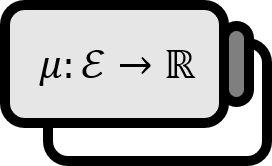Absolutely Continuous Real Function
Definition1
Let’s say a function $f : \mathbb{R} \to \mathbb{R}( \text{or } \mathbb{C})$ is given. If for any finite number of mutually disjoint intervals $(a_{i}, b_{i}) \sub [a,b]$, the following condition is satisfied, then it is said to be absolutely continuous on $[a, b]$.
$$ \forall \epsilon \gt 0 \quad \exist \delta \gt 0 \text{ such that } \sum\limits_{i=1}^{N} (b_{i} - a_{i}) \lt \delta \implies \sum\limits_{i=1}^{N} \left| f(b_{j}) - f(a_{j}) \right| \lt \epsilon $$
Explanation
According to the definition, if it is absolutely continuous, it is also uniformly continuous.
Properties
If $f$ is differentiable and its derivative $f^{\prime}$ is bounded, then $f$ is absolutely continuous.
See Also
- Absolute Continuity of Real Functions
- Absolute Continuity of Measures
- Absolute Continuity of Signed Measures
Gerald B. Folland, Real Analysis: Modern Techniques and Their Applications (2nd Edition, 1999), p105 ↩︎
